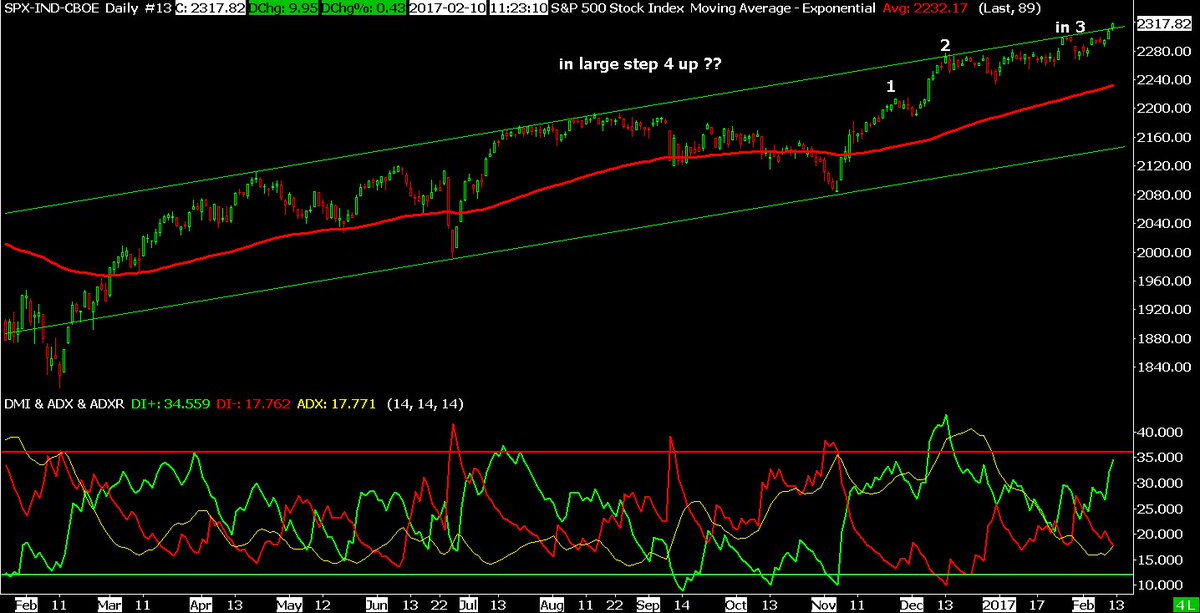
1. Be sure to check your emotions before you go
"Investing results don't necessarily correlate with the level of intelligence... it's a matter of temperament. must have the right mindset to handle the urges that can get you into trouble with investing." Warren Buffett is chairman of Berkshire Hathaway. He is an affluent investing sage who is an inspiration to investors seeking longer-term, long-term, market-beating and wealth building yields.
Before we start Here's a helpful advice for investors: We recommend to not invest more than 10% of your money in individual stocks. The remainder should be an array of low-cost index mutual funds. The money you will need in the next five year should not be invested in stocks. Buffett was talking about investors who allow their heads , not their guts to guide their investment decisions. Actually, excessive trading caused by emotion is one of the most frequently occurring ways that investors can harm their own portfolio returns.
2. Select companies, and do not use ticker symbols
It's easy to forget that there's an actual business behind every CNBC broadcast's stock quotes in the alphabet. Stock picking shouldn't become an abstract idea. Be aware that you are an owner of a business if you buy shares.
"Remember that purchasing shares of a company's stocks makes you a partial owner of the business."
When you are screening prospective business partners, you'll find a lot of data. But, it's much simpler to concentrate on the crucial information when you are wearing a "business buyer" cap. You'll want to know how the business is run as well as the competition, its long-term prospects and if it can add something new to your portfolio.

3. Don't be afraid during times of panic
Investors are often enticed by the prospect of change their stock-to-stock relationship. But making heat-of-the-moment decisions could lead to the most common investment error of buying high and selling at a low. This is where journaling can help. Track what makes each stock worthwhile and write down any circumstances that might justify you separating. Here are some instances:
Why I'm buying: Point out what you find attractive about the company , and what opportunity you see for the future. What are your expectations for the company? What milestones and metrics are most important for you in evaluating progress for your business? The potential pitfalls that could befall your company and how to avoid them.
What is the reason I should sell? For this part of your journal, write an investment plan that spells out what would drive you to sell the stock. We aren't talking about price fluctuations in the stock and especially not in the short term. But, we're talking about the fundamental changes that occur in the business that will affect its ability and potential growth in the long run. The following are instances: Your investment plan isn't realized within a reasonable period of times when the CEO is unable to win a major client, or the successor to the CEO moves the company in an entirely different direction.
4. Gradually build up your positions
The most powerful asset of an investor is timing and not time. Stocks are bought by the most successful investors due to the fact that they believe they will receive a reward -- through dividends, share price appreciation and the like. -- over time, or even decades. This lets you buy with patience. The three buying strategies listed above will help reduce your vulnerability to price volatility.
Dollar-cost average : It may sound complicated but it's really not. Dollar-cost averaging is the practice of investing a certain amount over a period of time. For instance, you can invest it every week or month. The set amount is used to purchase more shares when the stock price falls and less shares when it increases however, overall it will give you the average price you pay. Some brokerages online permit investors to create an automated investment schedule.
Buy in thirds: Like dollar-cost averaging "buying in threes" helps you avoid the emotional shaming of bumpy results right out of the beginning. Divide your investment amount by three. Next, select three points to buy shares. These can be set to be repurchased at regular intervals (e.g. every quarter or month) or based solely on the company's performance. For instance, you may buy shares before a product is launched and then put the remaining third of your cash in play if the product is an immediate success, or move the rest of the money elsewhere in the event that it isn't.
The "basket" The "basket": It's difficult to decide which business will win in the long-term. Take a look at all of them! The stress of selecting the "one" stock is eased by purchasing a variety of stocks. You won't lose out on any company that meets the test, and you could also utilize the gains from that winner as a protection against losing. This method will allow you to determine which company is "the one" and you may double your position if you would like.

5. Avoid trading too much
Inspecting your stocks every quarter, for example when you get quarterly reports -- is sufficient. It's difficult to keep your eyes on the scoreboard. This could result in an hyper-reaction to developments in the short term or events, and focus on company value instead of the share price and feeling the need to do something regardless of whether action is necessary.
Find out the reasons your stock has sharp price movements. Is your stock affected by collateral harm? Is something different within the core business of the company? Does it have a significant impact on your long-term outlook
The long-term success and performance of a well-chosen company isn't affected by short-term noise (blagging headlines and price fluctuations). It is how investors respond to the noise that matters the most. Your investment journal could be a helpful guide for being calm throughout the inevitable fluctuations, ups and changes that stock investing is known to bring.